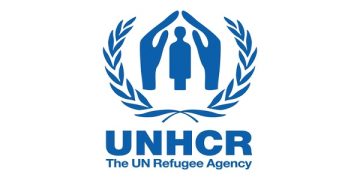Organizational context and General background of assignment:
Tongogara Refugee Camp (TRC) is located in the Middle Sabi area of Chipinge District, Manicaland Province, some 550 kilometres south-east from Harare and approximately, 80 km west of Chipinge town [longitude: -20.347495°, latitude: 32.328163°]. The camp area falls under the agro-ecological Zone 5 that normally experiences low amounts of rainfall, on average 200 to 400 mm per year. The camp is mostly a dry, hot and dusty area for the better part of the year. The camp is accessible during dry periods, however, access becomes difficult during rains. TRC being home to more than 15,000 refugees is in the process of transformation to promote-self reliance among the inhabitants given the protracted nature of the caseload due to instability in the Great Lakes’ region. UNHCR and partners continue to support several communal Livelihoods activities such as crop production, animal husbandry, fisheries, and piggeries.
In order to prevent the free-roaming of pigs and the corresponding hygiene concerns in Tongogara Refuge Camp (TRC), a large-scale pig farm was built in the south-west corner of the camp, directly neighbouring the Save River. The piggery is operated by refugees themselves. The manure generated each day by these pigs flows into a makeshift open lagoon adjacent to the piggery thereby causing significant environmental pollution.
UNHCR plans to implement a full-scale biogas plant at TRC for the processing of all generated pig manure. This plant has the potential to improve the wellbeing and livelihood of refugees: It could eliminate the ongoing environmental contamination caused by pig manure, create business opportunities for refugee farmers (trough the use of biogas and bioslurry, which is discharged from the digester) and overall promote their self-resilience.
Functional expertise and responsibilities:
There are two business streams that the consultant must advise on; biogas and bioslurry.
BIOGAS:
Research, analysis and presentation of productive biogas usages
- Conduct a comprehensive research on all potential biogas Income Generating Activities (IGAs) that can be formulated into profitable businesses applicable to the context of the Tongogara refugee camp.
- Conduct a multi-criteria analysis to identify the ideal IGA.
- Provide a detailed and comprehensive report on the above-mentioned two points, and present findings (and ideal IGA) to UNHCR and stakeholders.
Business and implementation plan
– Based on UNHCR’s decision regarding the ideal IGA, the consultant will develop a detailed business and implementation plan for the productive use of biogas from the TRC pig farm.
Implementation support
- Upon completing the procurement of the business equipment by UNHCR, the contractor is required to provide operational and technical support for refugee farmers in the selected IGA.
BIOSLURRY:
Guidance for agricultural bioslurry application in TRC
- The consultant is required to provide operational and technical support and guidance to refugee farmers in the field of agricultural application of bioslurry
Assessing commercialization of bioslurry
- For potential future commercialization of bioslurry products, and their sale outside of TRC, the consultant is required to assess the various related
Expected deliverables:
- Research, analysis and presentation of productive biogas usages: a report and presentation
- Business and implementation plan: a report
- Guidance for agricultural bioslurry application in TRC: a report
- Assessing commercialization of bioslurry: a report
- A final
Required qualifications and experience:
- have at least a bachelor’s degree in business-related fields (mandatory)
- have experience in developing, engaging, consulting or running successful businesses of related subjects, particularly small- scale manufacturing or community-based enterprises, for at least 5 years (mandatory)
- have experience working with marginalised communities (mandatory)
- have experience in business development or management in the pork industry (desired)
- have experience in organic agriculture and organic fertilizer systems (desired)
- have a clear understanding of the “do no harm” concept (mandatory)
- be able to work with minimum supervision (mandatory)
- be able to work with people having different cultural backgrounds than that in Zimbabwe (mandatory)
- communicate with UNHCR in English (mandatory)
- be competent in speaking French or Swahili (desired)
Interested and suitable candidates should submit a technical proposal detailing how they are going to approach the assignment showing the methodology, time frame and work plan. A separate single pager to be submitted also giving the financial proposal to undertake the assignment. Also, a separate Personal History or CV is to be attached. The full package to be submitted to [email protected] by the 27th of November 2022.

